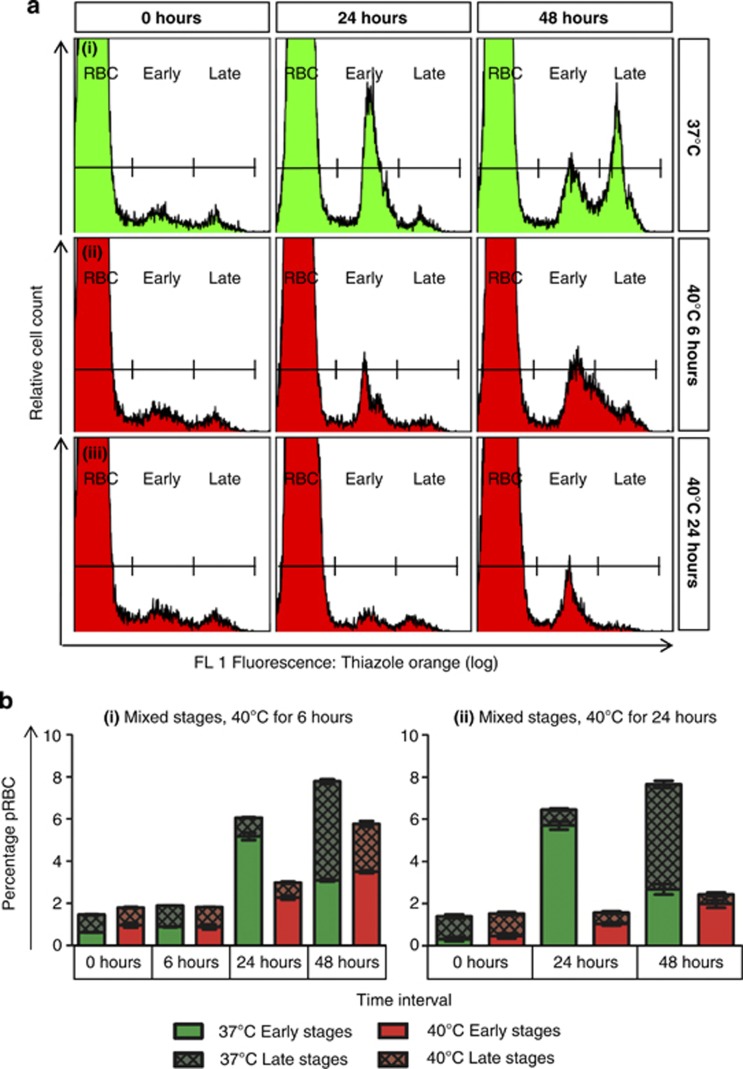Figure 1.
Exposure to 40 °C inhibited growth and development in mixed-stage P. falciparum in an exposure-dependant manner. Compared with control parasites kept at 37 °C (ai), cultures exposed to 40 °C for 6 or 24 h (aii and iii, respectively) showed an exposure-dependant inhibition in the formation of new ring-stage parasites (Early) from late-stage parasites (Late) at 24 h, with a correspondingly smaller late-stage population at 48 h (b). Late-stage parasites were more affected by heat stress. However, a delay in the development of ring-stage parasites to late stages was apparent between 24 and 48 h after 6 h exposure, which resulted in a broad, indiscrete peak at 48 h (aii), indicating a population of intermediate development. Furthermore, after 24 h exposure, few early-stage parasites at 24 h appeared to progress to late stages at 48 h (aiii and bii). Raw flow cytometry histograms (a) and stacked bar graphs (b) are shown. Stacked bar graphs show changes in parasitaemia (total bar height) and relative composition of the parasite population with respect to early- and late-stage parasites. For (bi) n=2, for (bii) n=6 at 24 h and n=4 at 48 h. Data points represent arithmetic mean±S.E.M. Heat stress was applied at 0 h

